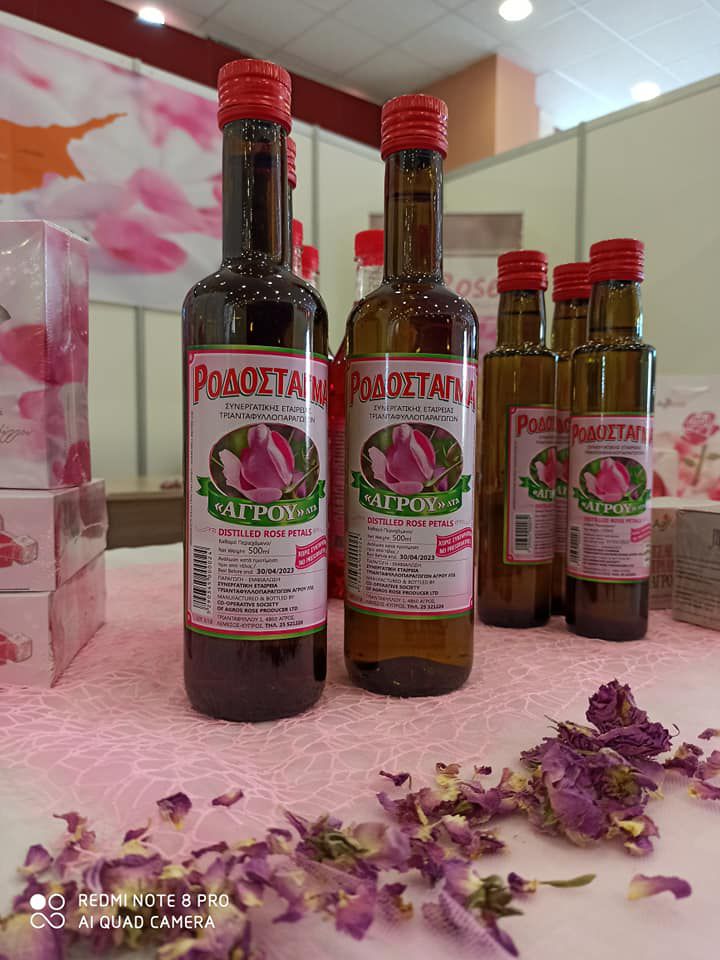Rodostagma Agrou: The Cypriot, award-winning, fragrant distillate
The village of Agros, among others, is famous mainly for the fragrant roses that are cultivated in the area and from which the distillation of Rodostagma Agros takes place.
The story begins in 1917 when Nearchos Clerides, a teacher in the
village, envisioned the spread of rose cultivation (Rosa Damascene) by founding
the 'Students' Association for the Propagation of the Rose'. The
production of rosewater started immediately with the first distillery in 1918
operating in the Field Boys' School. Over time, the demand for Rodostagma
Agros increased, as the villagers saw and experienced the benefits offered by
the cultivation of rhodes.
From 1961 until today, the distillation and marketing of Rodostagma has
been undertaken by the Cooperative Company of Rose Field Producers.
After the distillation is completed, the rosewater is stored in large
tanks and then bottled. Clinical studies have shown that rosehip contains
primary acids, which have mild, anti-inflammatory, antiseptic, healing and
whitening properties, which made the further exploitation of rosehip
particularly important.
In recent years, the Company, seeing the
exceptional properties of rosehip, has proceeded to the preparation of a series
of cosmetic products and traditional sweets under the brand name Agrose Rose Products,
such as food products, based on rosehip and rose oil, rose syrup, rosehip
loukoumia, indria , caramelized nuts, rose chocolate, rose tea.
The roses that will give the rose drop are picked up in the morning and
specifically from 6 in the morning until 10, so as not to lose the smell of the
roses and their essential oils. The flowers of the rose contain essential
oils, which to date have been recognized by about 400, by various methods, such
as mass chromatography. Then, the roses are placed the same day with water
in a modern distiller with a capacity of 600 kg and heated to a high
temperature around 85 ° C.
The water vapor generated is led to condensers,
where they are liquefied. The finished distillate ends up in large
isothermal tanks with a capacity of up to 1,000 liters and then the bottling
process begins. It is very important to note that no preservatives are
added to Rodostagma.
Rodostagma Agrou was awarded as the Cypriot Product of the Year 2018, at Eating Awards.
